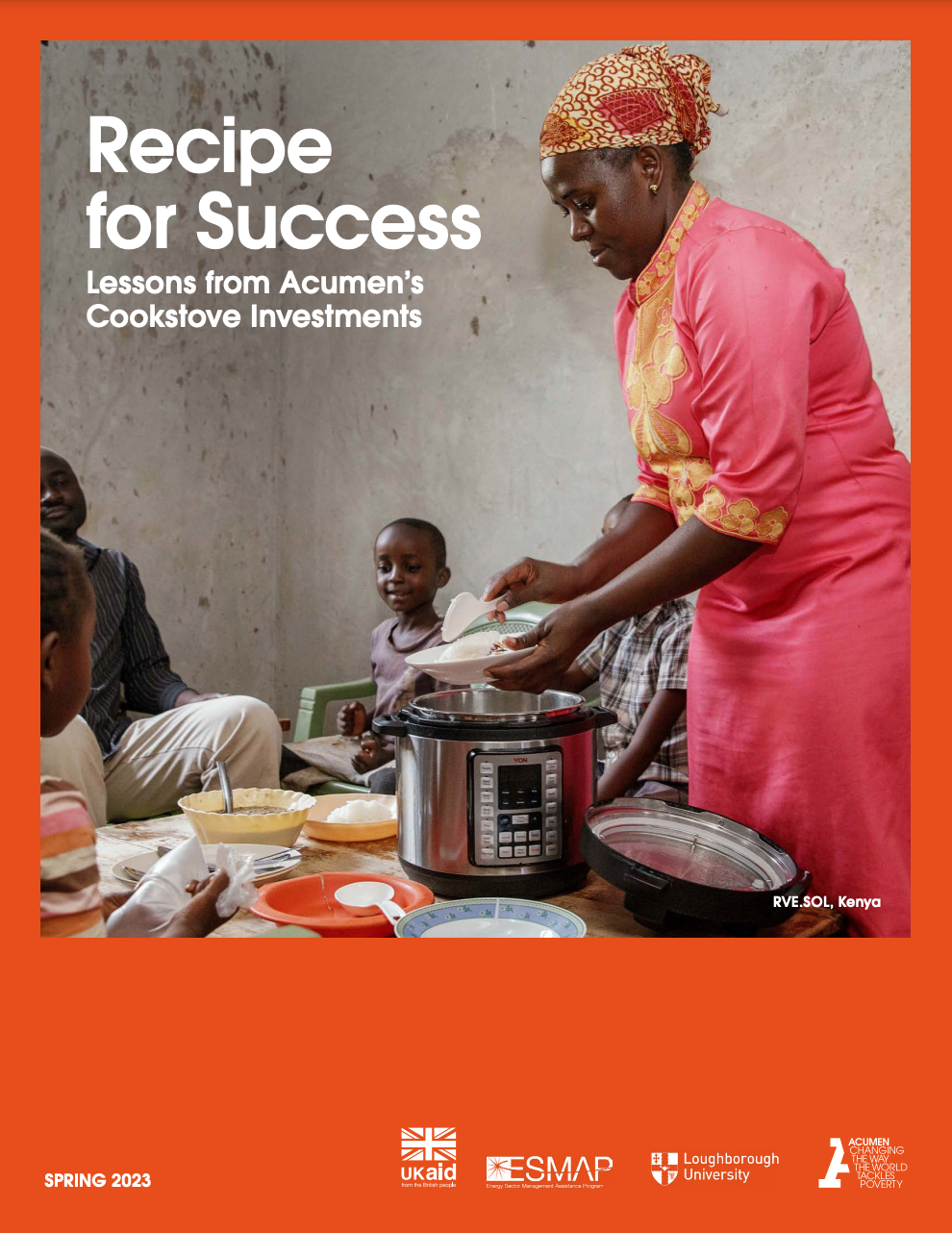DATABASE

Recipe for Success Lessons from Acumen’s Cookstove Investments
completed
Country
Global South
Year
2023
Issue
Solutions
Link
acumen.org
Abstract
The next frontier of cooking is to move beyond wood and charcoal altogether, and embrace modern energy cooking: electric pressure cookers, induction stoves, and gas. In 2020, Acumen launched a pilot project with Loughborough University under the Modern Energy Cooking Services (MECS) program, funded by UKaid through the United Kingdom Foreign, Commonwealth and Development Office, to support five companies in developing modern energy cooking business models and experimenting with product design and delivery. These pioneering companies can play a crucial role in demonstrating viable business models, attracting more capital into the sector, and sharing the lessons they learned on their pathways to scale. FIVE LESSONS FROM INVESTING IN CLEAN COOKING For the next generation of cookstove companies and investors, Acumen is proud to share five lessons from our investments in the clean cooking sector: 1. To succeed, cookstove companies must sell high-quality appliances at affordable prices. This requires innovative finance and working closely with customers on product design. Biomass cookstoves have been the most successful thus far—making up 69% of total revenues in the sector—but they are not the ultimate solution. 2. In the shift to modern energy appliances, behavior change is hard, but early adopters are rewarded. Electric and gas stoves are cleaner and more sustainable than biomass cookstoves. They also save time in cooking and collecting firewood. However, modern energy cooking companies are still early in their journey. 3. Scale in clean cooking has come through distribution partnerships. Many companies pivoted to strategic partnerships rather than selling directly to customers. The majority of sales were B2B, with stoves being sold wholesale to distributors or retailers, who then sell to the final customer. Companies also found success marketing to customers of microfinance institutions, who could access loans to pay for their stoves over time. 4. Carbon financing has transformed the sector. Not only do carbon credits contribute to a reduction in greenhouse gas emissions (Acumen’s investments have mitigated at least 18 million tons of carbon dioxide), they have also made cookstoves more affordable, and the companies more profitable. Carbon financing has a huge role to play in creating universal access to clean cooking. 5. It is impossible for entrepreneurs to succeed in this sector without a strong moral compass. Clean cooking has been an amazing success, but Acumen’s portfolio companies went through lean times. Several came close to folding before reaching scale. Strong character and committed teams are essential when undertaking a long-term endeavor to change behavior.

